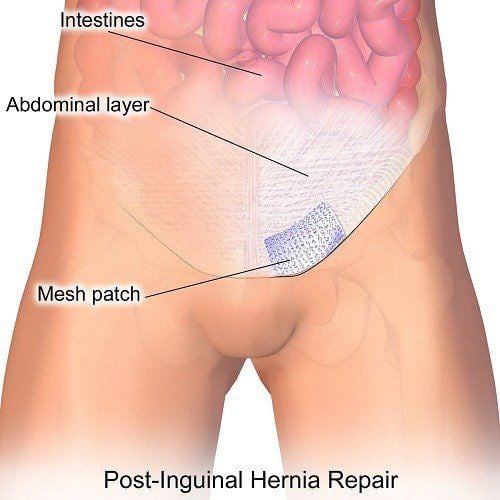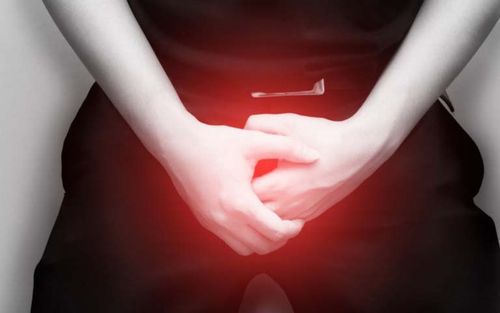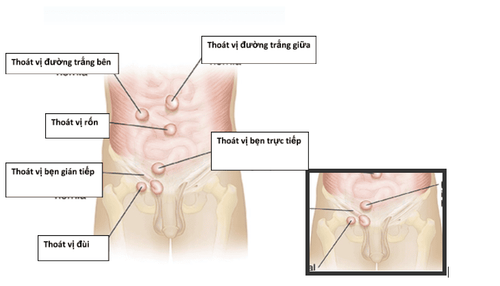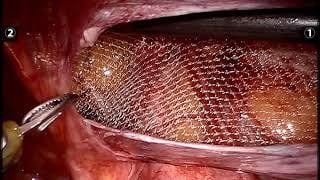This is an automatically translated article.
The article was professionally consulted by Doctor, Dr. Do Minh Hung - Department of General Surgery - Vinmec Central Park International General Hospital.Laparoscopic inguinal hernia surgery is a less invasive method with higher accuracy than open surgery with many surgical risks. Therefore, in the absence of contraindications, laparoscopic inguinal hernia surgery will be the preferred method.
1. Learn about inguinal hernia
The internal organs in our abdomen are held in place by the muscular layer of the abdominal wall. However, this muscle layer can be weakened in some places, causing the internal organs of the abdomen to protrude from the muscle layer of the abdominal wall, a condition called a hernia. Herniated viscera will form a bulge on the body.Inguinal hernia is not a rare disease. Patients with an inguinal hernia usually only experience pain or discomfort. However, the complications of the disease, such as hernia incarceration, hernia strangulation are extremely dangerous.
The disease can also be a favorable factor causing testicular atrophy, strangulation of the vas deferens causing testicular necrosis, increasing the risk of male infertility. In women, although inguinal hernia does not affect the ability to conceive, but once pregnant, abdominal pressure will make the condition worse.
Inguinal hernia is not difficult to treat, but it cannot be cured on its own. Therefore, the patient needs to be operated on early inguinal hernia to prevent complications.

Bệnh nhân bị thoát vị bẹn thường chỉ bị đau tức hay khó chịu
2. Methods of surgery for Ben's hernia
The definitive treatment for inguinal hernia is surgery. Inguinal hernia surgery by closing the hernia hole and reconstructing the abdominal wall by placing a mesh is the commonly used method. With large, invasive incisions, especially when open surgery, patients may face a number of surgical risks such as:Obstructive complications: lower extremity venous thrombosis, pulmonary embolism bleeding complications, vascular wounds, hematomas Infections of incisions, lines, drains Intestinal tract wounds, secondary intestinal obstruction Late complications: Pain persists, usually subsides later 2 years and is more common in direct anterior open surgery. Decreased sensation below the surgical scar in open surgery or the lateral aspect of the thigh during laparoscopic surgery may be due to regional sensory nerve irritation or injury. Recurrent hernias (about 2% in mesh strengthening surgeries). Basic surgical methods of inguinal hernia treatment:
Traditional open surgery: In the past, inguinal hernias were treated by traditional open surgical methods, with many potential risks of surgery, patients had to suffer. long incision, not to mention the possibility of missing the contralateral inguinal hernia. Minimally Invasive Surgery: Less invasive surgery includes robotic surgery and classic laparoscopic surgery (less invasive non-robot surgery). Laparoscopic inguinal hernia surgery is less invasive, highly accurate, and offers many advantages such as small incision, less pain, low risk of infection, short hospital stay, fast recovery time, less scarring, and less scarring. blood loss, improve treatment results.

Phẫu thuật nội soi thoát vị bẹn ít xâm hại, độ chính xác cao
3. Laparoscopic inguinal hernia surgery
The biggest advantage of minimally invasive surgery is that the surgeon can easily see the vas deferens and blood vessels supplying the testicles, and at the same time can stitch the peritoneal canal (the cause of inguinal hernia in children). do not touch the vas deferens or the blood vessels supplying the testicles. Therefore, minimally invasive surgery avoids two dangerous complications, namely vasectomy or testicular atrophy, complications that can be encountered during open surgery.Vinmec International General Hospital is currently equipped with leading equipment system and a team of high-class doctors and technicians to serve laparoscopic inguinal hernia surgery and robotic surgery:
robotic systems, such as the Da Vinci robot at Vinmec International General Hospital, help convert the surgeon's movements into machine movements through computer communication between the system working directly on the remote patient and the doctor's console. Hand-held robots are more flexible than conventional endoscopes. The robot is attached with a motor and control unit to the endoscopic handle, which helps the surgical head act as a flexible wrist joint that can be angled. In addition, the instrument also includes an endoscope that automates through voice, laser, eye tracking and other methods, allowing the surgeon to control the endoscope without an assistant holding the lamp when surgery. In addition, with the Hybrid clean operating room system, the risk of postoperative complications due to infection and infection is minimized. Led by Dean, Doctor, Doctor Do Minh Hung, also a member of the Surgical Association and the Vietnam Association of Laparoscopic Surgery. With nearly 25 years of experience in the field of General Surgery, especially in the field of Gastroenterology - Hepatobiliary Medicine, Dr. Minh Hung has carried out dozens of valuable scientific research works, published many surgical techniques. unique bring positive therapeutic effect. To register for examination and treatment of inguinal hernia with experienced specialists, please book an appointment directly at the website for service.
Please dial HOTLINE for more information or register for an appointment HERE. Download MyVinmec app to make appointments faster and to manage your bookings easily.













